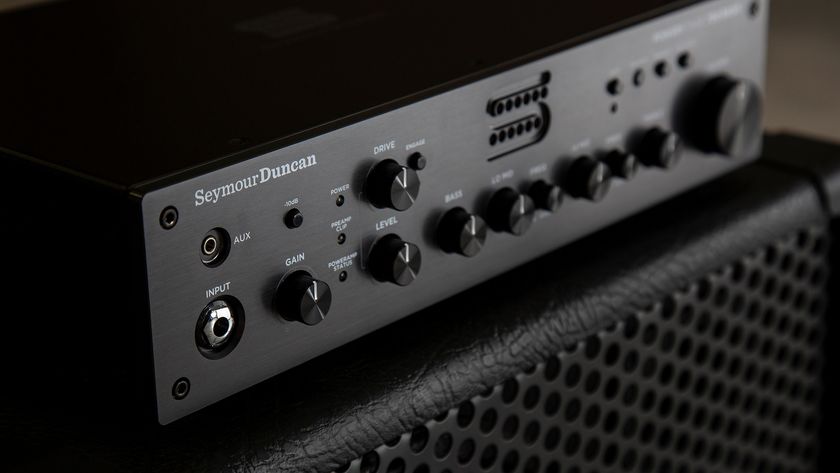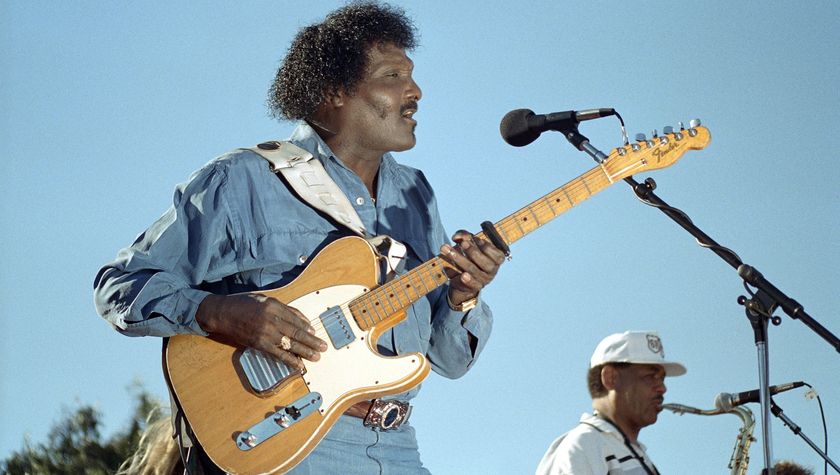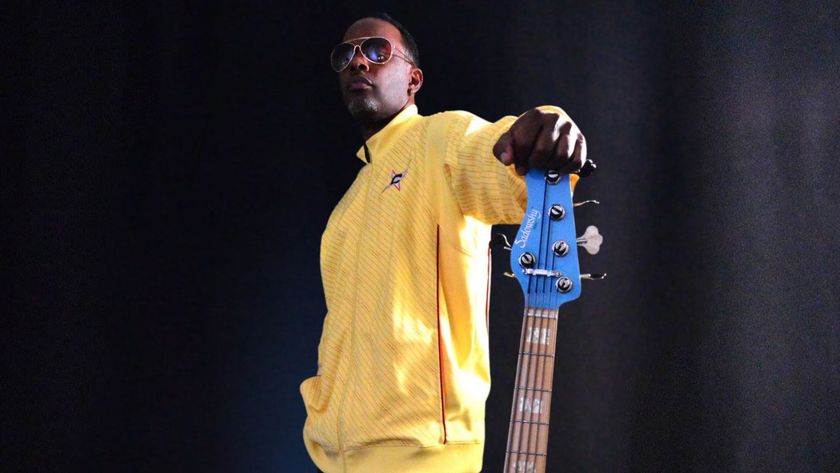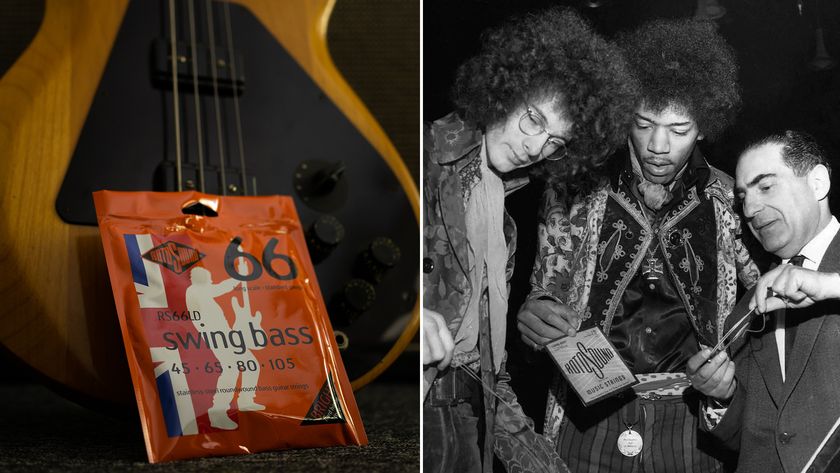Behemoth: Devil in the Details
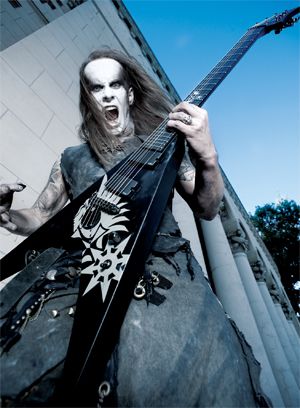
Originally published in Guitar World, Holiday 2009
Behemoth's Nergal tells how the finer points of guitar technique and songwriting helped make Evangelion one hell of an extreme metal album.
Every band likes to think that its most recent work is also its best. In the case of Poland’s Behemoth and their new album, Evangelion, singer-guitarist Nergal is absolutely sure of it.
“This lineup of Behemoth has played more than 500 shows,” he says. The guitarist is checking in from Virginia Beach shortly before his blackened death metal band takes the stage at this year’s Mayhem Festival. “As a result, we know pretty well what’s working in the set and what’s not. And I can tell you that when we play songs that we’ve played 500 times before and then we play a song from Evangelion, like ‘Ov Fire and the Void,’ it just beats the total shit out of the other songs. The song is pretty simple, but there’s an intelligence to it. It basically plays itself.”
Nergal comes by his confidence honestly. Since forming nearly 20 years ago, Behemoth—which also includes bassist Orion and drummer Inferno—have become one of the most influential acts in the European extreme metal scene. Evangelion is the band’s ninth album of carefully controlled chaos. Though “evangelion” refers to spreading the word of Christ, Behemoth twist the meaning both in their songs and on the album’s cover, which depicts the Whore of Babylon riding a seven-headed beast, with the tablets bearing the 10 Commandments broken at her feet. The image is an apt reflection of Evangelion’s lyrics, which take inspiration from such diverse sources as German anarchist-philosopher Johann Kaspar Schmidt (“Ov Fire and the Void”) and Polish poet Tadeusz Micinski (the closing track “Lucifer”).
The album is the follow-up to 2007’s The Apostasy, a record that helped the band gain traction in the U.S. and earned them spots on that year’s Ozzfest and on a package tour with Job for a Cowboy and Gojira. Despite its role in Behemoth’s success, The Apostasy left Nergal feeling unsatisfied. “It’s like it was half done,” he says. “I desperately wanted to go back into the studio to remix it and redo things to make it sound better. But it was too late. We had a schedule and deadlines, and we had to hit the road.”
Once Behemoth completed touring for The Apostasy, Nergal began planning the band’s return to the studio “so that we could make it up to ourselves,” he says. The result is an accomplished effort that is brutal but melodic, precise yet pummeling. Nergal says, “You’ve gotta be deaf if you can’t hear the improvement in songwriting.”
Get The Pick Newsletter
All the latest guitar news, interviews, lessons, reviews, deals and more, direct to your inbox!
GUITAR WORLD Talk about your experience on Mayhem this year, playing shows with Slayer, Marilyn Manson and Cannibal Corpse. Did you find yourselves playing to new audiences?
NERGAL I’m sure of it. This is probably our 15th visit to the U.S., but each time we’ve played on really diverse bills that have unusual combinations of bands. We’ve co-headlined with Job for a Cowboy and opened for King Diamond and for Danzig, plus we’ve played Sounds of the Underground and Ozzfest. I really hope we’re reaching out to new people. We don’t want to end up like so many extreme metal bands that play the same tours over and over again. Our philosophy is about challenging ourselves, and how can we challenge ourselves when we’re playing in front of the same people?
GW What do you think it is about Behemoth that attracts people who don’t know everything there is to know about blackened death metal?
NERGAL Our energy and chemistry, which I would like to think is undeniable. Watching Slayer, I’ve been blown away by their energy—it hits me between the eyes. I get the same feeling when I see Machine Head, and I think there’s something about Behemoth that appeals to different people’s tastes. I meet people every day who are like, “Hey, I’m not really a death metal fan or a black metal fan, but there’s something about you that’s very captivating.” Energy is a universal language.
GW Did you guys set out to capture a wider audience with Evangelion?
NERGAL No, no, no. The last thing we wanna do is compromise our music for the sake of bigger recognition. Fuck that. We still have our “fuck-off” attitude.
GW Which means what?
NERGAL Which means that we please ourselves first. We wanna play songs that we’re passionate about and that we love and that we can identify with—songs that speak our mind about who we are as people.
GW You’re much happier with Evangelion than you were with The Apostasy.
NERGAL The Apostasy was very diverse, but went in too many different directions. The songs on Evangelion are distinctive, but they’re very focused. Evangelion is more monolithic, compact and, as a result, consequential.
GW Did you have any specific goals for your guitar work on this record?
NERGAL Every time we enter the studio I try to expand and improve my style and my technique. Even before we started recording, I hooked up with [guitarist] “Metal” Mike Chlasciak in New Jersey to get some instruction and advice. He helped me pay attention to details of my playing that I had ignored before.
GW Such as?
NERGAL I told him, “Let’s focus on lead technique. Show me stuff that will be new to me.” I’m not trying to reinvent the wheel—I’m the last person on Earth who’d try to do that—but I want to challenge myself and my own style. I don’t wanna be one of these guys who repeat the same notes on every fucking record. So he went through some modes and told me some interesting keys and how you can use different patterns. Basic stuff. I always have to refresh my mental knowledge about guitar playing before a new record. Then I forget about it, and you’ll see me in two or three years going through the same shit again.
GW Did you end up exploring any new territory?
NERGAL Yeah, there are at least a few things on this record that I’d never played before in my life. I was happy to get rid of the Eastern scales I overused on The Apostasy and Demigod [from 2004]. You get trapped in a certain mode, and then there’s a subconscious tendency to keep repeating yourself every time. It’s automatic—you just play it without even thinking about it.
GW ESP recently introduced your first Signature Series guitar. What does that mean to you?
NERGAL I think having a signature guitar is the dream of every guitarist. It means that what you do is significant and means something to people. For me, it’s a huge privilege, especially because it’s with a company like ESP, and their guitars are played by top mainstream metal bands, like Metallica and Slayer and Rammstein. The fact that ESP cares about an extreme underground band like Behemoth is amazing. When they told me they wanted to build a signature guitar for me, I was speechless.
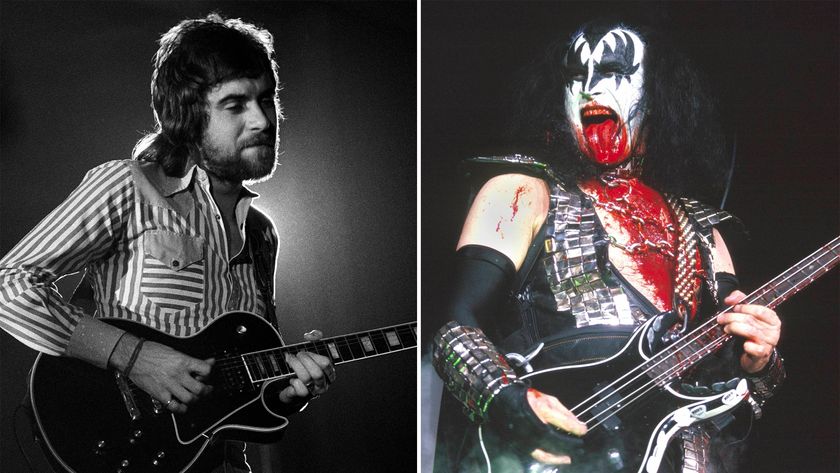
“I had to use the same microphone that Gene Simmons used with all the blood coming out of his mouth. Can you imagine that!”: Mick Rogers recalls Kiss supporting Manfred Mann's Earth Band in their early days

“Once Dave got his Roland Space Echo, it changed the vibe… that, and a lot of marijuana”: They inspired everyone from Oasis to the Smashing Pumpkins. Now English post-punk luminaries the Chameleons are back for more

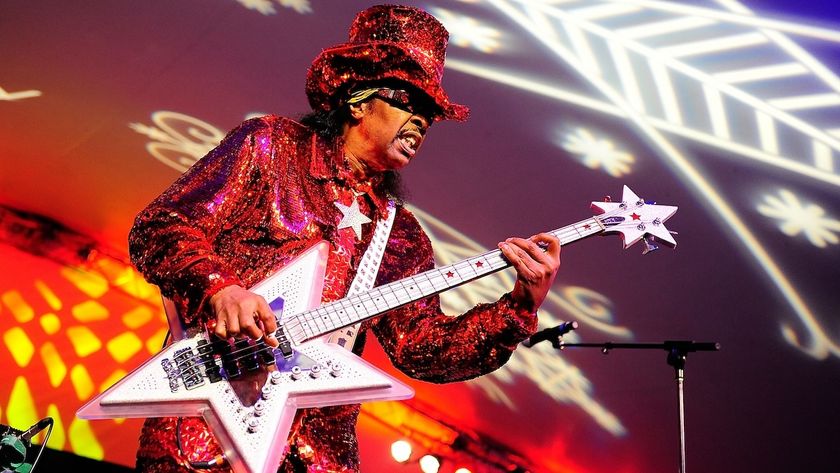
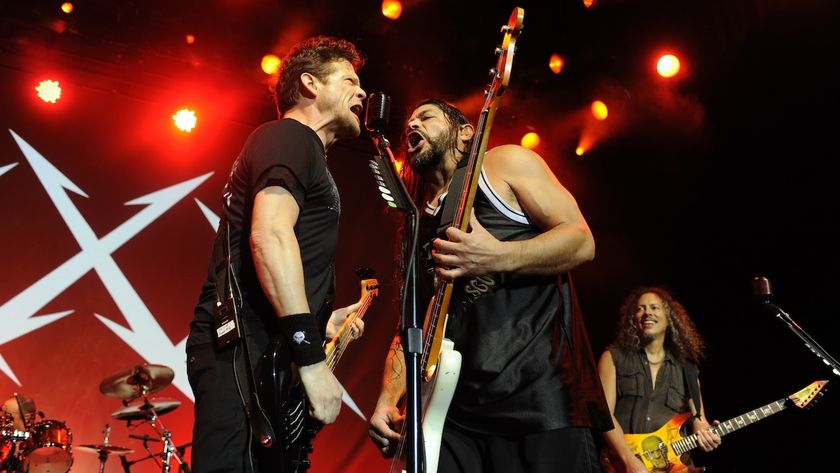
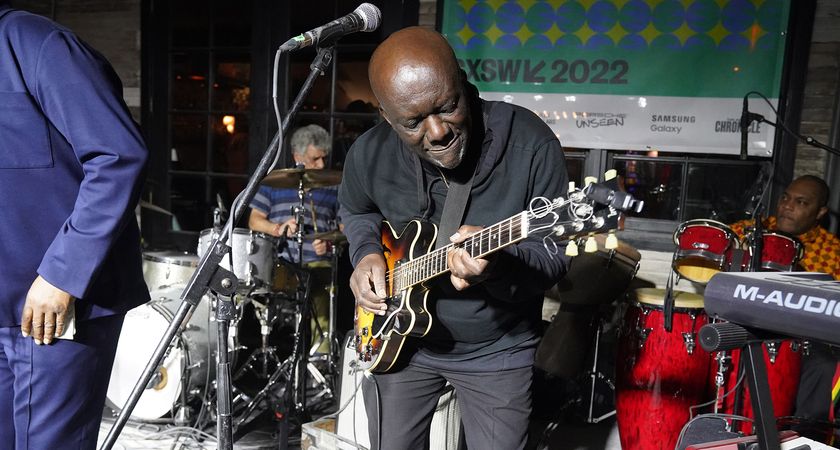
![[L-R] George Harrison, Aashish Khan and John Barham collaborate in the studio](https://cdn.mos.cms.futurecdn.net/VANJajEM56nLiJATg4P5Po-840-80.jpg)
